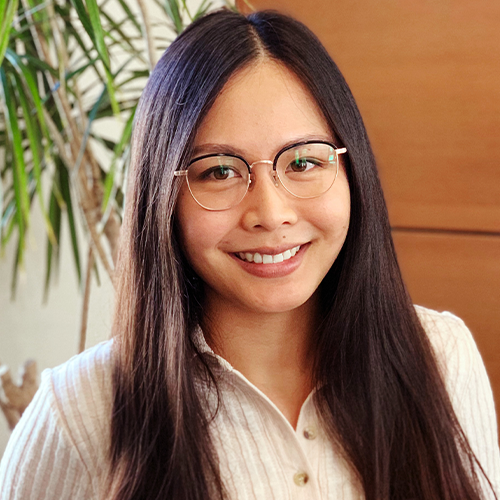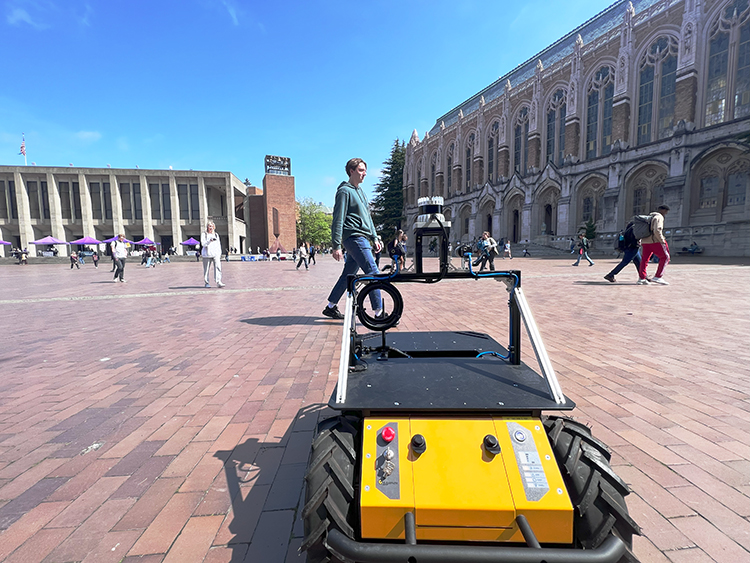Amy Sprague
August 20, 2025
Assistant Professor Karen Leung has received a prestigious National Science Foundation Faculty Early Career Development Program (CAREER) Award for research that could improve how autonomous systems interact safely with humans.

Karen Leung
The five-year award will support her work in A&A’s CTRL Lab on the development of data-driven safety models that help mobile robots understand the complex social dynamics governing human behavior, with applications spanning operations in crowded areas like hospitals, airports, city centers, and warehouses.
Understanding the safety landscape
When you walk down a crowded sidewalk, you instinctively navigate around other people. For autonomous systems, this kind of nuanced navigation presents an enormous challenge.
"The dynamics of real-world interactions are shaped by factors that are incredibly difficult to model, like uncertainty, social norms, contextual cues, and the way people respond to each other," Leung explains. "We need systems that can learn from this complexity while still being transparent about how they make safety-conscious decisions."
Traditional approaches often rely on overly simplified assumptions, leading to systems that are either too conservative or too optimistic. Leung's approach uses data-driven techniques grounded in control theory to create "safety landscape" models that capture the nuanced reality of human-robot interactions.
Three pillars of safety
Leung's CAREER project unfolds through three interconnected research areas. First, she's developing methods for generating safety-critical data on how humans behave when operating at the edge of safe interaction. Second, her team is creating analysis and modeling techniques that make these complex multi-agent interactions interpretable for regulatory approval and public trust. Finally, they're developing "socially-aware" control strategies that consider not just the system's own safety, but its influence on the safety of others.
Real-world testing

An autonomous robot roams UW’s Red Square with applications to navigate with more human-like social skills. Undergraduate researcher Jasper Geldenbott is in its sights.
One of the most exciting aspects is the partnership with Harborview Medical Center, where Leung's team will deploy their algorithms in a real hospital environment. Healthcare settings present unique challenges because they're dynamic, high-stakes environments where robots must navigate around patients, medical equipment, and staff while maintaining the highest safety standards.
"Hospital environments are particularly challenging because the stakes are so high, but they're also incredibly valuable testing grounds," Leung notes. "Ultimately, we want people to feel confident that autonomous systems can be safe partners in their daily lives. That requires not just better technology, but better ways of understanding and communicating about safety itself."
CAREER Awards are among the most competitive honors for early-career faculty, making it especially remarkable that A&A has two recipients in 2025, with Leung joined by Assistant Professor Ed Habtour.
Related story
controls research
Eye-tracking for tailored autonomy
NSF funds eye-tracking research to help us create autonomous systems that can adjust to individual comfort levels.